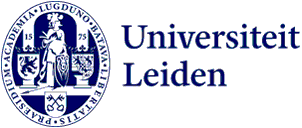
Sjef Barbiers moves to INT: ‘Especially in times of AI, we need to keep Dutch relevant’
Professor Sjef Barbiers is leaving his job as scientific director of LUCL for the position of scientific director of the Institute for the Dutch Language (INT) from 1 September.
The INT is perhaps best known for the dictionaries it produces, including the Algemeen Nederlands Woordenboek (ANW). 'The aim of the institute is to collect and make available all documentation and knowledge in the field of the Dutch language,' Barbiers explains. 'That ranges from the first Dutch texts from the sixth century to the active collection of contemporary Dutch. The production of the dictionaries flows from that, but the INT does more than that.'
Today, for instance, many of the institute's corpora are digitally available and searchable, and INT has started working on the grammar of Dutch. Barbiers: 'The Algemene Nederlandse Spraakkunst (ANS) is maintained and updated here, but you also have the Taalportaal, for example. The description of Dutch you find there is perhaps the most extensive of any language in the world, and it also includes descriptions of Frisian, Afrikaans and Saterfries, which is spoken in Germany.'
Treasure trove of AI possibilities
Combined with AI, those big data collections offer a treasure trove of possibilities. 'If you want to give newcomers feedback on their Dutch, you could link a tool like ChatGPT to the grammatical knowledge from the ANS, so that the feedback they get is correct,' Barbiers anticipates. 'For people with low literacy, you can use AI to automatically simplify texts, which immediately raises all kinds of interesting questions, such as what simplification actually is.'
This and other research could well be conducted in collaboration with the INT. 'You can also use AI tools, for example, to map the change of Dutch over centuries. What conceivable changes have been found? And which ones never actually occur?'
Staying relevant
That’s very fitting for Barbiers, who as a linguist deals with variation in Dutch grammar. At the same time, the emphasis on AI is also relevant to the position of Dutch, he stresses. 'The major large language models focus on the main European languages like English, German, Spanish, Portuguese, Italian and French. The other languages have to make sure themselves that they remain relevant, and preferably also in an ethical way and where the data are not held by a random US company.'
Collaboration
Barbiers sees here further opportunities for collaboration with the university. 'The INT is now temporarily located at Rapenburg, but it was always in Cluster Noord, where it will return in 2029. That makes it easy to integrate the data and tools at the INT's disposal into the courses at the Dutch language and culture department, so that students have up-to-date knowledge, also about the possibilities and dangers of AI. In addition, we always have internships available for students who want to gain practical experience.'
This cooperation is further facilitated by the fact that Barbiers remains attached to LUCL. 'The INT is seconding me for one day a week. I’m looking forward to that, also because I know that LUCL is in good hands with my successor. I can confidently leave my current tasks to her.'
